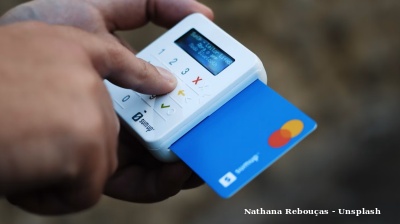Analysts spoke of an impressive recovery as Turkey’s economic confidence index moved up by 2.5% y/y to 106 in August, reaching its highest level since July 2012, according to August 29 figures released by national statistics office TUIK.
“Quite a remarkable turnaround under the circumstances,” remarked Timothy Ash, senior sovereign strategist at BlueBay Asset Management.
He added: “I guess we can pinpoint the impact of the credit guarantee scheme, plus also fiscal pump-priming, with the Ministry of Finance today suggesting that the budget deficit this year is likely to double to TRY60bn, and then the central bank which has moved back to a more orthodox monetary policy holding its average funding rate back around 12%. The latter has been really important in anchoring the lira around the 3.5 level - which as any Turkey watcher should know is so important in anchoring Turks’ confidence. But important I think is the fact that at 3.5 the lira is ‘cheap’, with the REER [real effective exchange rate] still back at 2003 levels, which has helped on the balance of payments front, underpinning portfolio inflows.”
Ash also cited the long-term underpinnings provided by strong banks, favourable demographics and Turkey’s pro-business culture and sound public finances.
Improved security under the more than one-year-old state of emergency has also boosted economic confidence by cutting the number of terrorist attacks and restoring lost tourism receipts. “The state of emergency on one account has driven local capital flight - but at the same time might have helped on the domestic security situation, so a difficult trade-off,” said Ash.
One cloud on the horizon for Turkey is the depletion of the government’s credit guarantee fund (CGF). Around 80% of the TRY250bn ($71bn) CGF has already been used to backstop bank lending and analysts are pondering how much economic steam the country might lose once the availability of soft credit substantially tightens.
On the confidence index, the 100-mark separates optimism from pessimism. The index was in pessimistic territory as recently as June when it dropped to 98.9 from May’s 100.5. But it gained to 103.4 in July before climbing to August’s 106. The indicator stood at 106.7 in July 2012.
Of the five index sub-indices, only the consumer sentiment category posted a monthly decline in August. The consumer confidence sub-index declined by 0.3% m/m in the month after rising 1.9% m/m in July, the new data showed.
The business confidence sub-index, which dropped 1% m/m in July, increased by 2.3% m/m in August while confidence in the construction industry improved 3.3% m/m in August after declining 1.4% y/y in July. The sub-index measuring confidence in the services sector was up 1.6% m/m in August, easing from the previous month’s 5% m/m rise. The retail industry confidence sub-index, which rose 6.6% y/y in July, gained 1.1% m/m in August.
Data

India’s retail payment revolution
India’s payments landscape has reached a pivotal stage, with digital transactions now accounting for 99.8% of all retail payments.

Military aid for Ukraine falls despite new Nato PURL initiative – Statista
The Kiel Institute for the World Economy found that military aid to Ukraine dropped sharply in July and August compared to previous months, despite the implementation of the Nato PURL initiative.

IMF cuts Russia’s 2025 growth forecast to 0.6%, leaves Ukraine's unchanged at 2%
The International Monetary Fund has lowered its forecast for Russia’s economic growth in 2025 to just 0.6%, marking the second-steepest downgrade among major economies, even as it raised its global outlook.

Russia's PMI indices plummet as economy cools
Russia’s private sector entered deeper contraction in September, as both services and manufacturing activity declined, according to the latest PMI data published by S&P Global.




